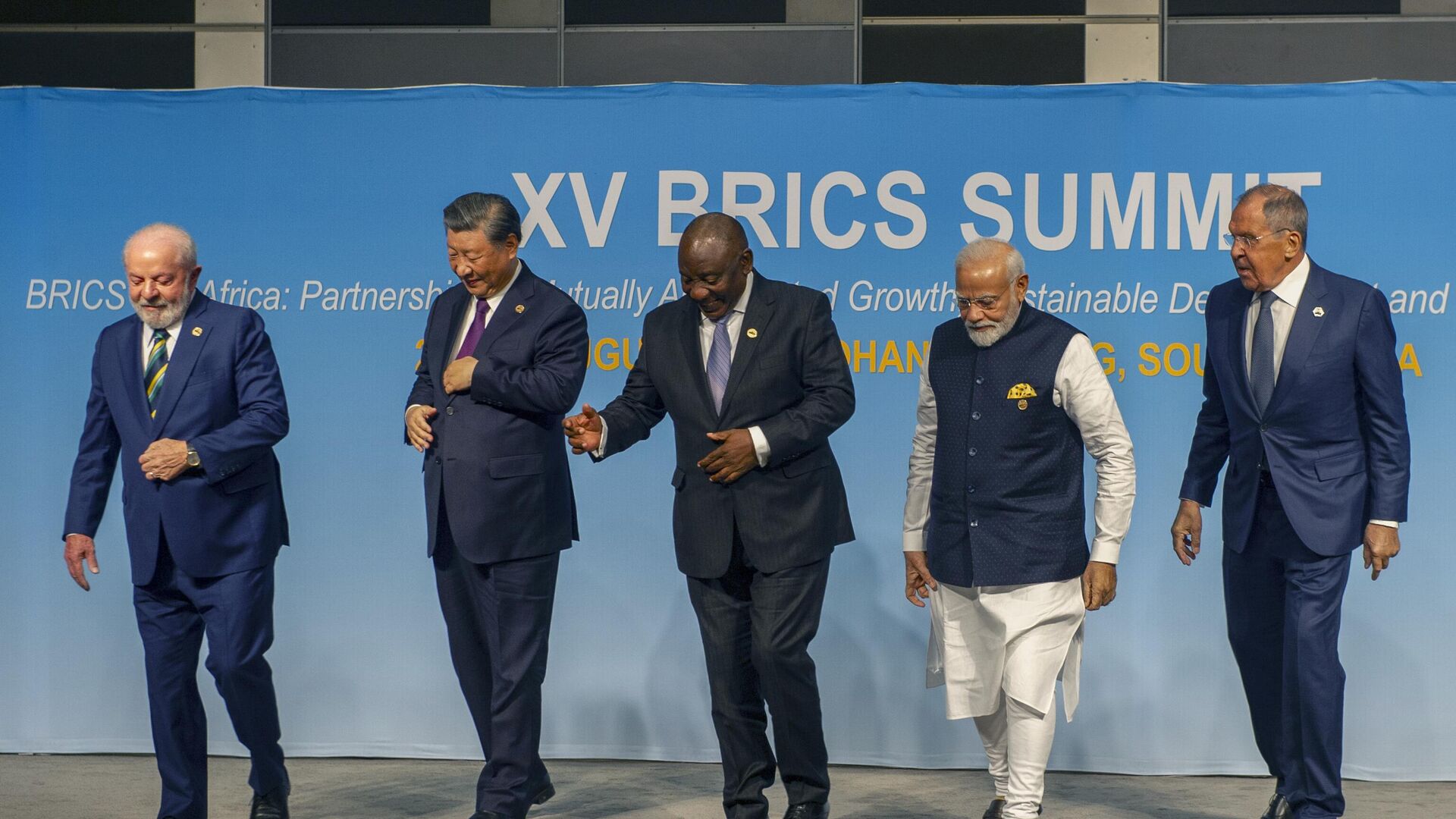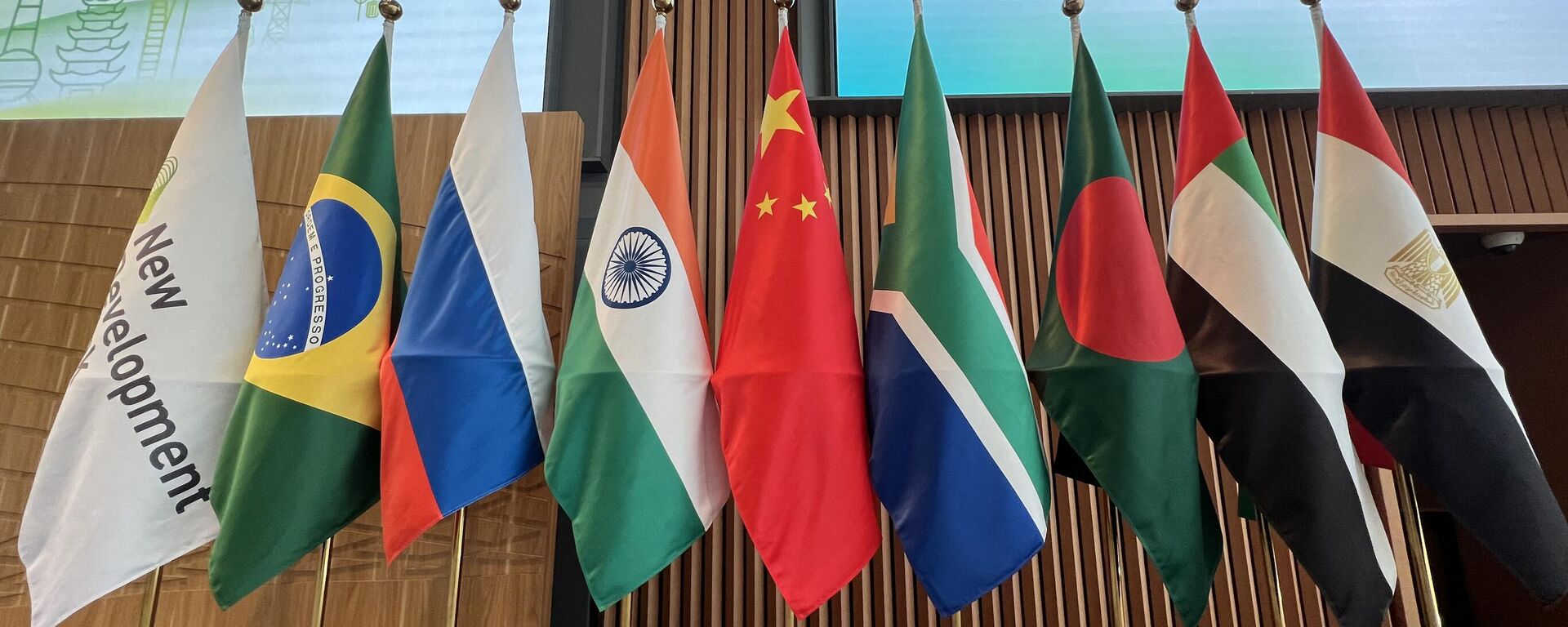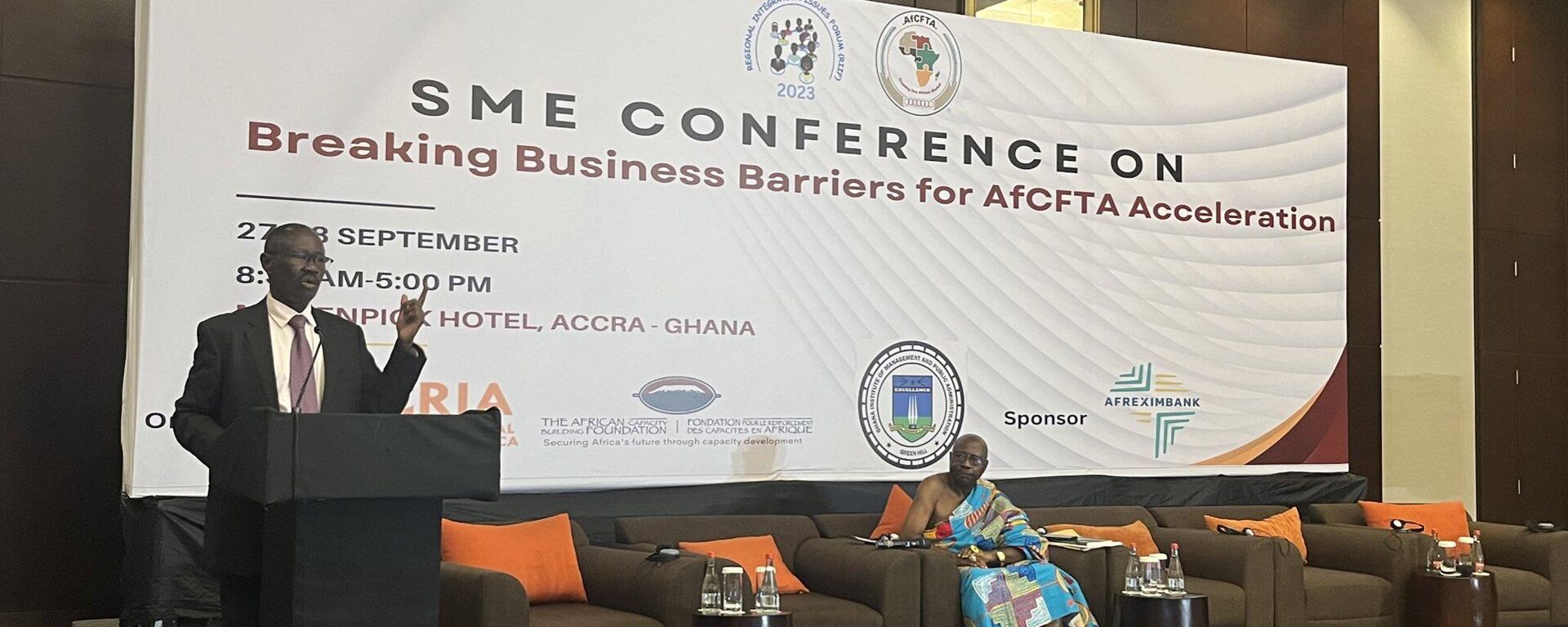BRICS as 'Alternative Model' to Help Africa in Achieving Financial Sovereignty, Growth: Scholar

© AP Photo / Alet Pretorius
Subscribe
In August, speaking at the BRICS Summit in Johannesburg, South Africa, President Ramaphosa said the alliance is exploring opportunities for enhancing the stability, reliability, and fairness of the global financial architecture. He noted that BRICS believes that the time has come to leverage local currencies and alternative payment systems.
The BRICS group of emerging economies makes a substantial contribution to the preservation of African nations' sovereignty in diverse areas, including trade, finance, and geopolitics, said Dr. Marida Nach, Lecturer in International Economics, Trade and Finance at Nelson Mandela University, in an interview with Sputnik Africa.
"When it comes to BRICS, it plays a significant role in ensuring the sovereignty of the African nations. First of all, this provides Africa with a diversification of trade partners," she said, adding that the partnership with BRICS "will give a huge opportunity for African countries to actually trade and also give them access to a bigger and larger market."
The expert recalled that during the recent summit in South Africa, the alliance opened its doors for two more African nations, namely Egypt and Ethiopia. According to Nach, this expansion provides great opportunities in terms of trade not only for these two countries, but also for the entire continent.
She observed a significant discrepancy in the infrastructure systems throughout Africa, which requires large investments in infrastructure development. Thus, she added, BRICS, in particular the New Development Bank, could play a key role in assisting countries facing these challenges.
Furthermore, collaboration with BRICS nations can foster economic growth and stability, as well as facilitate the transfer of knowledge and technology, the lecturer noted.
Nach elaborated that collaborating with BRICS presents benefits in gaining geopolitical influence and foreign policy independence. The BRICS member states have already attained notable significance on the international political and can thus assist Africans in advancing their interests and aspirations.
"And the BRICS countries have gained a geopolitical importance in alignment, and this can provide African nations with more leverage on the global stage as well. And it can help protect the sovereignty by ensuring that their interests are considered in an international forum in negotiation as well," she explained.
Alternative, Not Competitor
According to Nach, one of the primary obstacles faced by African nations and the BRICS group pertains to the existing global financial framework that depends solely on a single system of using the US dollar in transactions, with no alternatives available. This lack of choice is particularly detrimental to developing countries, she said, stressing that they "are actually suffering" from the absence of alternative options for financial models.
"There's a need for these countries, especially emerging countries, now, to facilitate and boost the trade and enhance the trade cooperation, to actually find an alternative, how to trade more without relying on the dollar," she noted.
Against this backdrop, she said, the BRICS member states and many developing countries worldwide are seeking alternative ways to boost their trade and economic growth without relying on the existing financial architecture, which is dominated by the dollar and the euro.
At the same time, she emphasized, the BRICS nations are striving not "to compete with anyone" but rather to establish an "inclusive platform" that fosters trade, economic cooperation and political unity within the alliance and beyond.
Earlier this month, South African President Cyril Ramaphosa said that BRICS finance ministers and heads of the nations' central banks are working on creating a unified platform for BRICS currencies and a payment system. Nach commented on this development, stating that the creation of a unified payment system is feasible, drawing a comparison with the establishment of the euro, which was initially met with skepticism.
"But I always say to my students, look at how the euro was created. The euro was created even though people did not believe it was going to happen. But look, the euro is now functioning perfectly," she said.
Therefore, the BRICS payment system, if established, would not create competition, but rather provide another alternative for many countries struggling with their economies due to reliance on a single financial transaction option, she concluded.
How AfCFTA Can Be Game-Changer
Nach also touched upon the issue of leveraging the opportunities provided by the African Continental Free Trade Area (AfCFTA), which is in terms of the total number of countries the world's biggest and largest free trade area. First of all, she said, to effectively implement the AfCFTA, it is necessary to increase "the financial infrastructure network in transportation."
Moreover, reducing tariff and non-tariff trade barriers is a fundamental strategy, she continued. Africa has taken steps in this direction by introducing free visas in certain countries, including "most of West African, Central African, and even some southern African nations." Although some labor movement has been authorized, greater integration is needed, Nach reiterated.
Another way to improve the efficiency of the area is to harmonize regulations and standards, as well as ensure the involvement of private sector, which "is essential for driving economic growth and development," especially in Africa.
"I was actually listening, before this interview, to the World Bank meeting in Marrakesh in Morocco, where [they were] discussing the need for increasing investment and also the need for skilled labor and for human capital as well. So I think it is also very important when it comes to the African Continental Free Trade Area," she said.
With one of the youngest populations in the world, Africa has a vast potential workforce and consumer market, the expert added. Thus, investing in human capital is imperative for the continent's sustained development.


